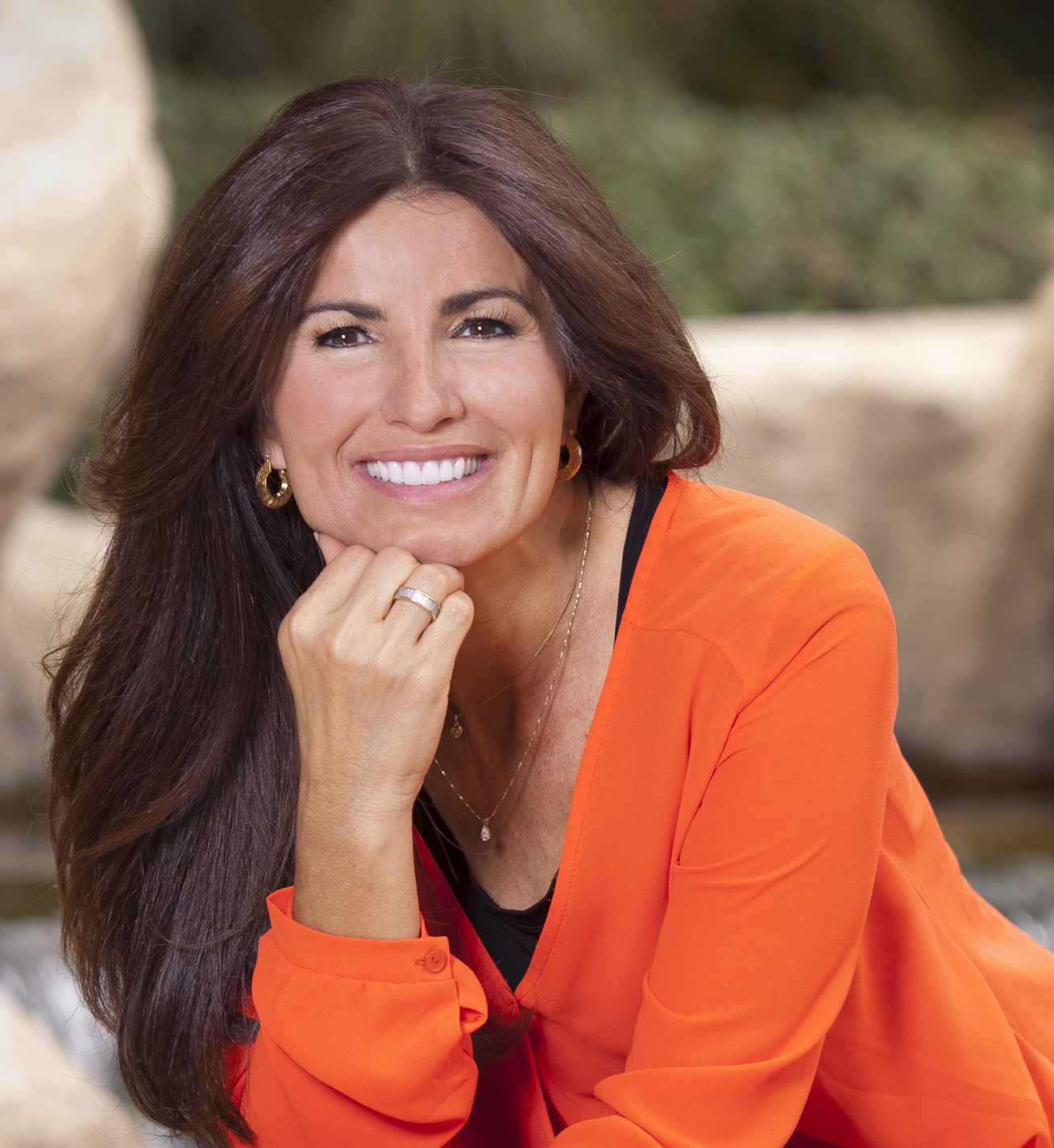By Fatima Doman, Author, Speaker, CEO AuthenticStrengths.com, Positive Psychology Coach
“We can look at virtually any crisis and recount how character strengths came forth to not only help ourselves weather the storm, but also to reach out and help others. The tools are in our hands, and the time is now, to build the fulcrum around which humanity can begin tipping toward its highest promise.”[i]
—Dr. Neal H. Mayerson, VIA Institute on Character
We are at a critical tipping point in history as our technological advances outpace our collective psychological maturity. The recent rise in depression, anxiety, violence and suicide calls for accessible tools to build well-being and sustainable solutions in these rapidly changing and turbulent times. The empowering new science of character strengths can be a catalyst for fulfilling our hopes of a better future.
An Urgent Call to Action
In his recent article, The Character Strengths Response: An Urgent Call to Action,[ii] Dr. Neal H. Mayerson, Chairman of the VIA Institute on Character, affirms that character strengths “hold great promise…to simultaneously enable good lives for ourselves and others, help prevent excessive violence and escapism, and help us successfully parent next generations.” He goes on to address unprecedented advances in technology, some of which are negatively impacting our well-being and the planet’s future—what he calls the “danger gap.” Mayerson expounds, “Because we are living in a world in which we have ever-increasing technological powers that require wise decision-making, focusing on character strengths science takes on an immediate urgency. Certain errors in judgment as to the application of our technologies can have devastatingly negative impacts. We stand on a precipice that is only getting more and more unstable as time marches on, and advancing our collective psychological maturity is an imperative.”[iii] In other words, this gap is mounting evidence that our knowledge of technology is growing exponentially faster than our understanding of our very own selves.
Reflect for a moment on how in a relatively short time we’ve become obsessed with technology. Just one example of this phenomenon is the manipulative component in social media, that left unchecked, competes for our own sense of autonomy.[iv] [v] This growing obsession with how many “likes” we get on Instagram, Facebook, or Twitter derides our sense of self-worth in a subtle, yet corrosive way. In her book, The Future of Happiness, author Amy Blankson offers insights, “Technology, at least in theory, is improving our productivity, efficiency, and communication. The one thing it’s not doing is making us happier… knowing that technology is here to stay and will continue to evolve in form and function, we need to know how to navigate the future to achieve a better balance between technology, productivity, and well-being…”[vi]
An Empowering Approach
Positive psychology (the science that encompasses the study of human character strengths) offers an empowering approach on how to live a thriving life. While positive psychology recognizes that mental and emotional issues exist, this expansive science focuses significant energy on the wholeness and best within people.
Many people still carry a deficit perspective of themselves and of others. As a result, they aren’t aware of how it affects their own well-being, their relationships, and how they show up at school, at work, and in their communities. Science has shown that what is observed, comes to the forefront. So, one solution is to learn to see ourselves through the lens of our character strengths instead, discovering our highest potential within.
What are character strengths?
Character strengths are who we are at our best—the qualities that, when nurtured, lead us to positive interactions and engaging, meaningful pursuits where we flourish. Developing an awareness of our character strengths helps us focus on “what’s strong” instead of on “what’s wrong.” Scientists have identified 24 character strengths—basic building blocks defining our psychological makeup—such as hope, kindness, teamwork, fairness, leadership, love, honesty, perspective, bravery, forgiveness, etc. We each possess all 24 in different degrees and combinations. Hundreds of studies have revealed that people who express their character strengths experience greater resilience, achievement, happiness, fulfillment and more. Moreover, recent research shows that “…character strengths offer an important role in buffering, reinterpreting, managing, and transforming the adversities and problems of life…”[xii]
A Positive Contagion
Have you ever walked into a room of people and you could feel the tension, infecting your own mood as well? The reverse is also true—by expressing our character strengths we can create a “positive contagion.” If we are emanating hopeful, collaborative, uplifting thoughts and emotions, we can counteract fearful, negative thoughts and emotions—impacting not only ourselves, but those around us.[vii] Ultimately, we are responsible for our own inner world, which influences our outer world.[viii]
Positivity begets more positivity, and research proves it’s contagious.[ix] Dozens of global research studies have shown that when people are exposed to positivity, they see more solutions in puzzles, score higher on cognitive tests and recall more information—among myriad benefits.[x] In addition, acknowledging the best in others creates an upward spiral, leading to healthier emotional states and deeper connections. The key is to become the positive spark that puts the upward spiral into action.
Because we are all connected, we can all contribute to the well-being of the whole. In the words of Rollin McCraty, Ph.D., who heads up the Interconnectivity Research Project, “I believe humanity is at a unique point in its evolutionary history of consciousness. We now have an opportunity and the intelligence to make more empowered choices to create a cooperative and harmoniously connected world.”[xv]
A Higher Path
We need more tools rooted in character strengths to take the higher path in our human evolution. I’d like to offer one such tool that I call a “mindset check.” Consider the mindset you bring to your relationships with yourself and others—are you creating what you really want in your life and in the world in which you live? Take a moment to do the mindset check below,[xvi] self-assessing where your mindset is currently. Are you leaning more toward the Inner Coach or toward the Inner Critic? Where can you make positive changes?
| Inner Critic | Vs | Inner Coach |
| Weakness Focus | Character Strengths Focus | |
| Competitive | Cooperative | |
| Individualistic | Team-Oriented | |
| Threatened by differences | Values differences | |
| Entrenched | Seek common ground | |
| Afraid of change | Dynamic/Growing |
Mindset is huge. Some people still carry the outdated view that progress is about critiquing and correcting weaknesses so that improvements can be made, but research demonstrates that can be demoralizing and deflating. In contrast, when you focus on yours and others’ character strengths you become a builder and a motivator.
Imagining A Better Future
Back to Dr. Mayerson and his call to action. He challenges us to imagine future generations that have been “inculcated each and every year with advancing knowledge about social and psychological resilience and well-being.”[xvii] He and others are urging humanity to develop psychological maturity by making character strengths science part of the core sciences and humanities curricula, furthering the advancement and application of human wisdom. These optimistic solutions may usher a new global culture harbored more safely in human character strengths.
Written by Fatima Doman, Author of Authentic Resilience and Authentic Strengths, Speaker, Positive Psychology Coach, and CEO of Authentic Strengths Advantage.
Disclaimer: Mental health issues, such as depression, substance abuse, abusive environments, etc., are best addressed with the help of a medical professional or licensed therapist. Please seek appropriate help.
[i] Mayerson, Neal H. “The Character Strengths Response: An Urgent Call to Action.” Frontiers
in Psychology. August 21, 2020.
[ii] Mayerson, Neal H. “The Character Strengths Response: An Urgent Call to Action.” Frontiers
in Psychology. August 21, 2020.
[iii] Mayerson, Neal H. “The Character Strengths Response: An Urgent Call to Action.” Frontiers
in Psychology. August 21, 2020.
[iv] Price, Catherine. “Trapped — The Secret Ways Social Media is Built to be Addictive (and
What You Can do to Fight Back.).” Science Focus. October 29, 2018. https://www.sciencefocus.com/fu- ture-technology/trapped-the-secret-ways-social-media-is-built-to-be-addictive-and-what-you-can- do-to-fight-back/.
[v] Haynes, Trevor. “Dopamine, Smartphones & You: A Battle for Your Time.” May 1, 2018.
Harvard University. http://sitn.hms.harvard.edu/flash/2018/dopamine-smartphones-battle-time/
[vi] Blankson, Amy. The Future of Happiness: 5 Modern Strategies for Balancing Productivity and
Well-Being in the Digital Era. Dallas: BenBella Books, 2017.
[vii] HeartMath. Accessed September 6, 2019. https://www.heartmath.com/
[viii] Abulela, Amy. “Wherever You are, be There Totally: An Excerpt from The Power of Now by Eckhart Tolle.” New World Library. December 12, 2014.
[ix] Isen, A.M. Positive Affect, Cognitive Processes, and Social Behavior.” Advances in Experimental Psychology 20 (1987): 203-53.
[x] Fredrickson, Barbara L. Positivity: Top-Notch Research Reveals The Upward Spiral that Will Change Your Life. Edinburgh: Harmony, 2009.
[xi] “Tal Ben Shahar.” Azquotes. Accessed June 8 2015. http://www. azquotes.com/quote/672859
[xii] Niemiec, R. (2019). “Six functions of character strengths for thriving at times of adversity and
opportunity: a theoretical perspective.” Appl. Res. Qual. Life 15, 551–572. doi:
10.1007/s11482-018-9692-9692
[xiii] Drew, Emily. “Dr. David Cooperrider Works With Nepal’s President and Constitutional Assembly.” Weatherhead School of Management. December 1, 2009. Accessed September 8, 2019.https://weatherhead.case.edu/news/detail?idNews=1437
[xiv] Cooperrider, David. “The Three Circles of Strengths Revolution: Moving from the Micro to the Macro Magnification of Strengths via Appreciative Inquiry.” Presentation from VIA Institute on Character. n. d.
[xv] “We are all Connected!” HeartMath. Accessed September 8, 2019. https://www.heartmath.com/blog/articles/new-science-its-not-just-the-world-wide-web-that-connects-us/
[xvi] Coach vs. Critic Model, © 2014-2020, Authentic Strengths Advantage, LLC. (Inspired by:
Columbia University Coaching Certification Program Learner/Judger Model; Marilee C. Goldberg’s, The Art of the Question 1998 p. 161-178).
[xvii] Mayerson, Neal H. “The Character Strengths Response: An Urgent Call to Action.” Frontiers
in Psychology. August 21, 2020.
[xviii] Adler, S. (2008). “Global business as an agent of world benefit: new international business
perspectives leading positive change.” Handbook of Research on Global Citizenship, eds A. Scherer and G. Palazzo (Northampton, MA: Edward Elgar Publishing).


